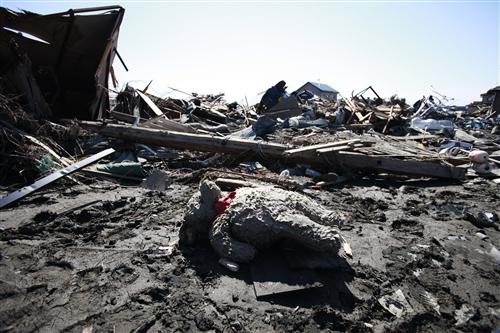How to Talk with Children about Tragedy
By: Other | March 16, 2018

Written by Jennifer Wendt, Ph.D.
Do you wonder how to talk about tragic events with your children? With media seemingly broadcasting such events 24 hours a day, we are exposed to much more information than ever before. We are less able to protect our children from the news of tragedies, allowing our children exposure to disturbing information at earlier ages. This requires adults to provide thoughtful communication, support, and reassurance to children when tragedies occur.
The content of the conversation may sound different depending on the age of the child, but the guidelines below help in talking about tragedy with children of all ages.
Listen
Listen carefully to what your children say and what questions they ask. Also listen for clues about what they are feeling.
Find Out What They Know
Before sharing information, find out what your children already know. Ask what they have seen or heard and what other kids around them are saying. If they reference the news or media, also inquire what they saw there.
Consider the Child’s Developmental Level
Consider what your child’s understanding of the world is at this age and simplify your message accordingly. Consider whether this is your child’s first exposure to this type of event or is there another event to compare it to.
Allow Children to Lead the Conversation
Rather than launching into long, complicated explanations, answer each question simply and straightforwardly. Children will ask more questions if they need more information. They may ask in the moment or approach the subject again later. Children can ask the same question over and over or repeat information as a means to understanding.
NormalizeTheir Feelings
It is important to let your children know that their feelings of fear, sadness, or anger are normal. You may even share how you are affected by the news, such as “I feel sad to hear about what happened too.” As parents, we often have the urge to wipe away these feelings with distraction or comments about why it couldn’t happen to us. Save reassurance for a later moment and first acknowledge the emotional reaction.
Reassure
In the event of a tragedy, we all seek comfort, safety, and reassurance, especially children. It does not mean that we now tie the conversation up in a bow and dismiss the impact. Reassurance is developed with support, connection, and action. It is comforting to point out all the people who are working hard to help those affected, including emergency crews, teachers, family members, and neighbors.
Share with your child that plans are in place for people to get help. Focus on the human nature that people want to help one another. Observe the acts of kindness that help spark ideas for solving problems and planning for action. This helps children to shift from feeling helpless from this tragedy to developing ways to react when tragedy occurs. It is a subtle and unspoken way to teach children that while we may not be able to prevent a tragedy, we can unite together to heal and repair the aftermath.
When tragedy occurs and you prepare to talk with your child, the guidelines above can help to prepare your mind. Also, practice how you will explain the event at your child’s level. You need not know all the answers but you do need to be wholeheartedly present with the child while providing a sense of support and security.
Image: Direct Relief on flickr and reproduced under Creative Commons 2.0



